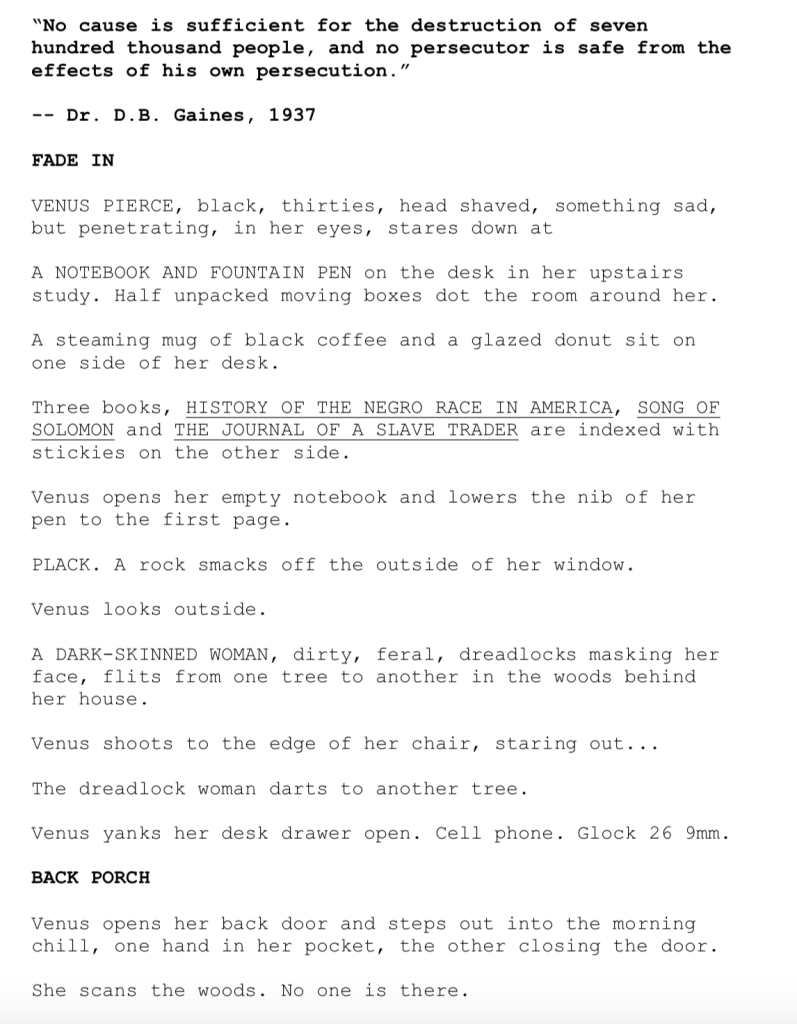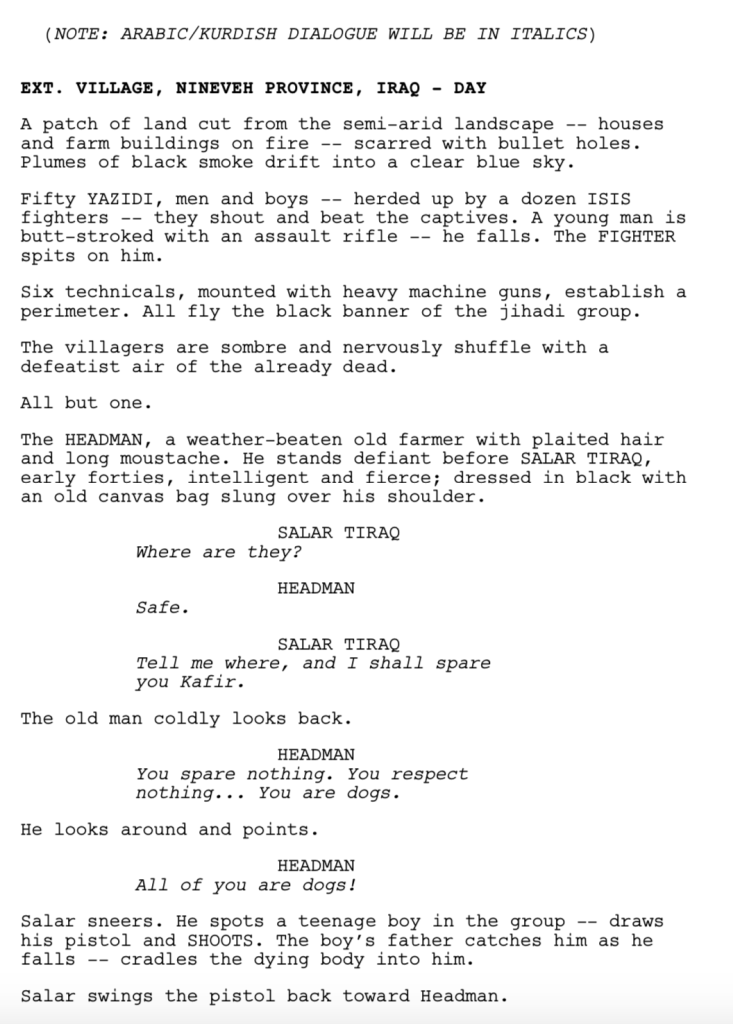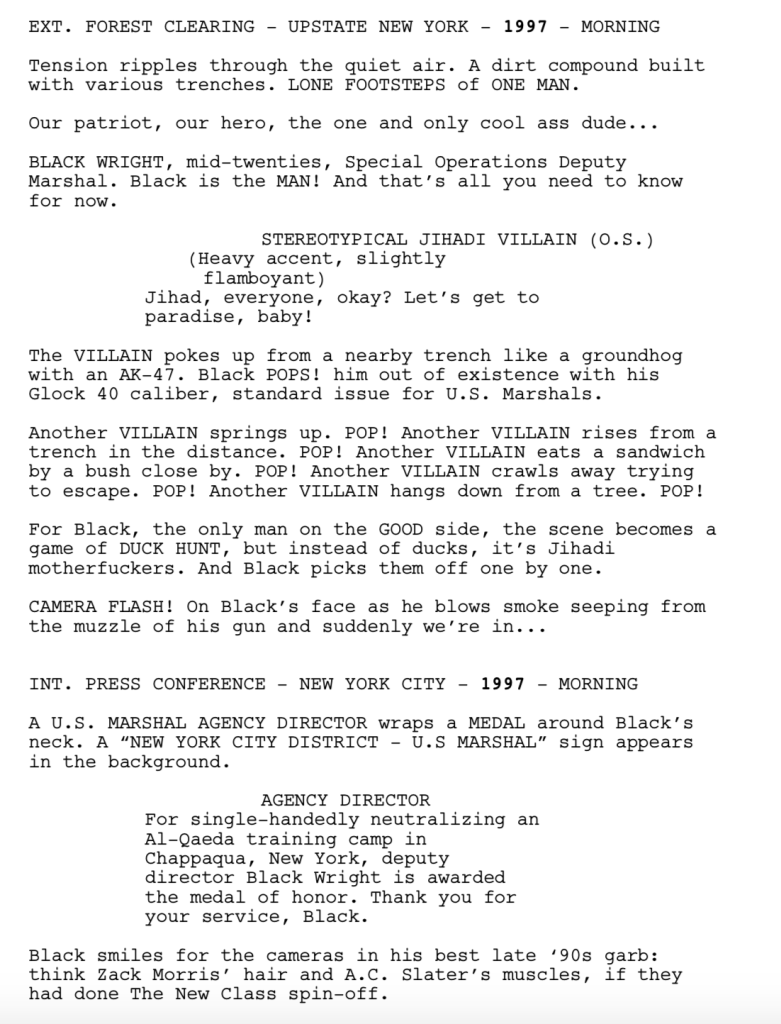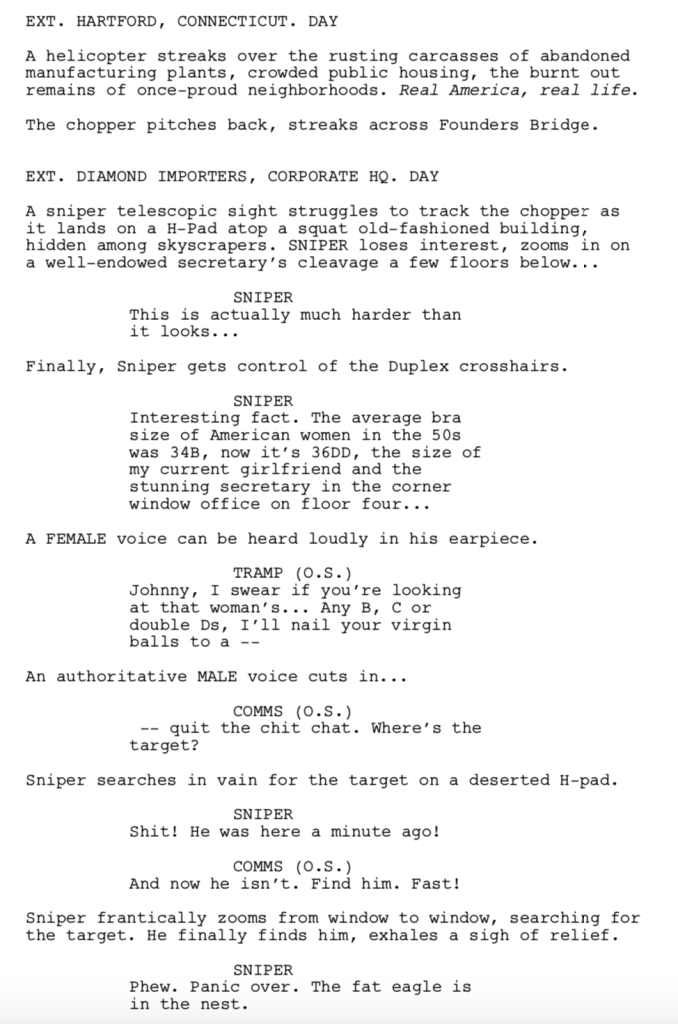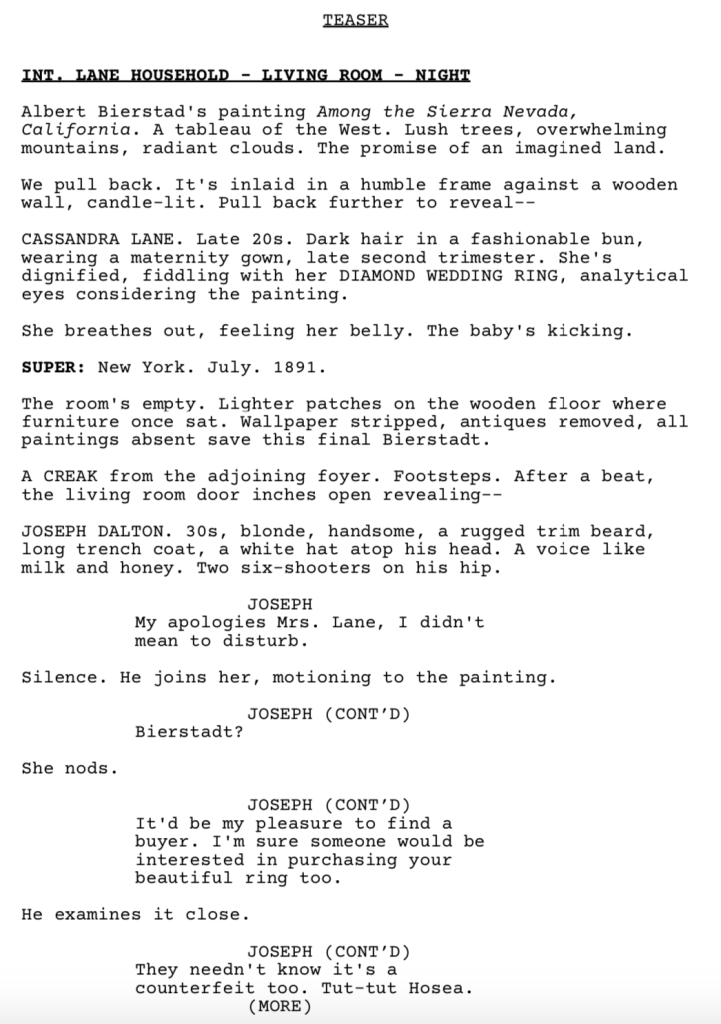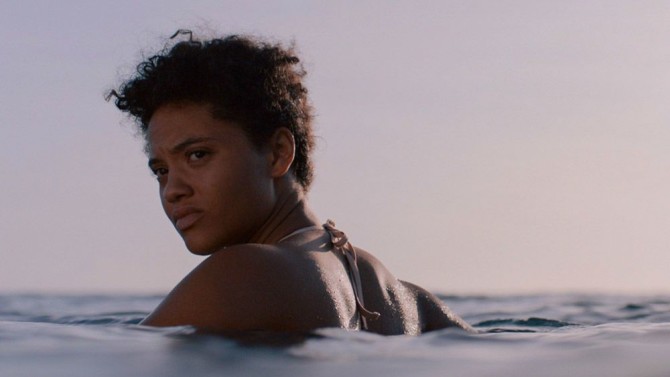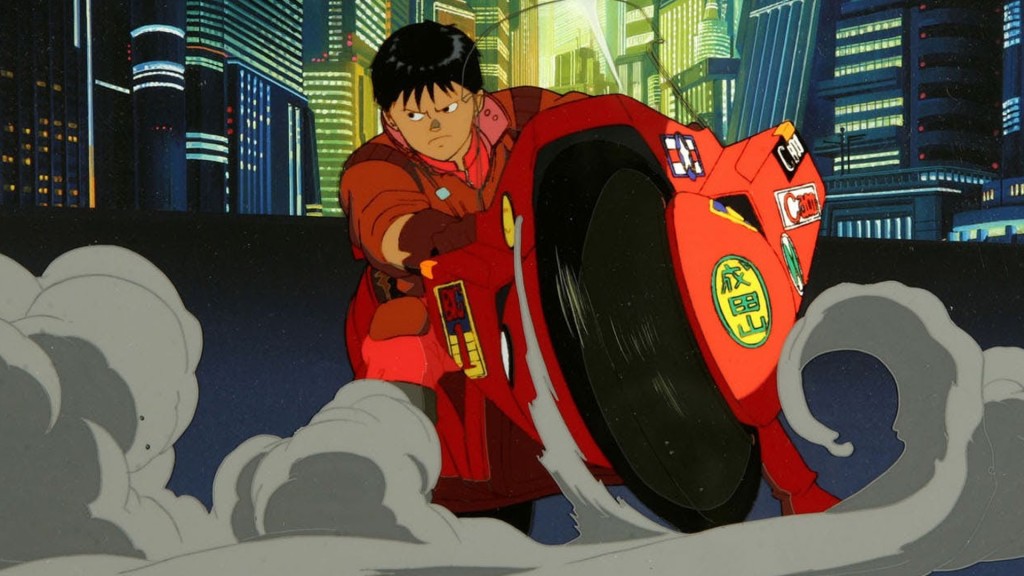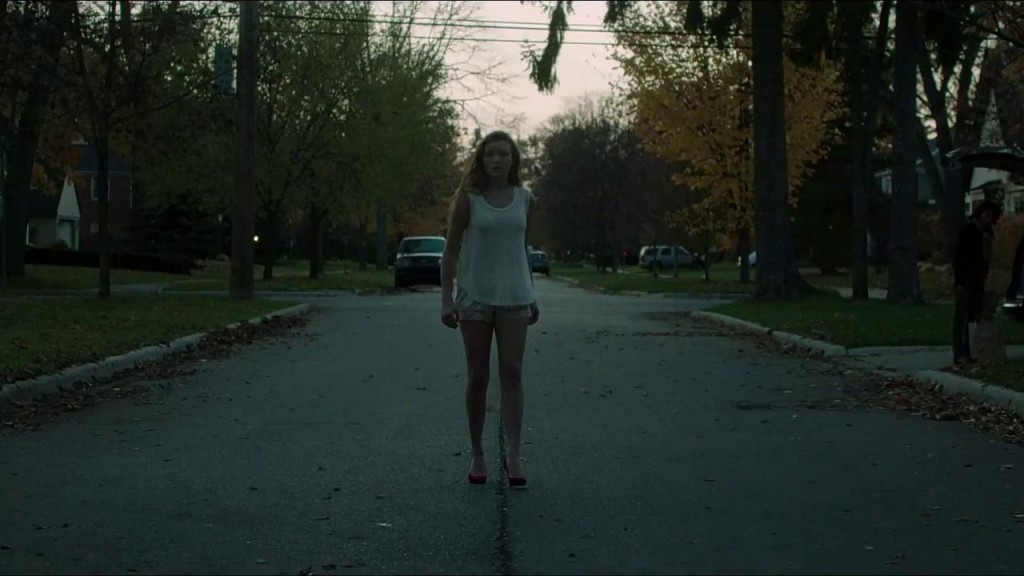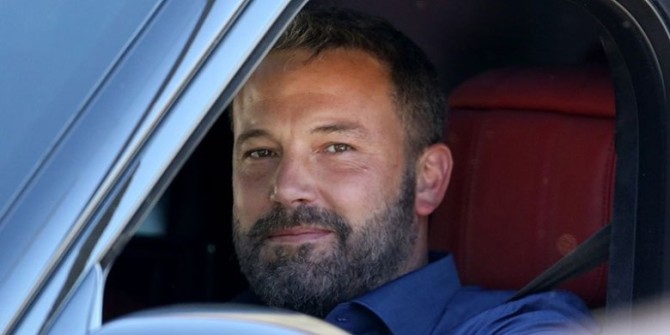THE NEWSLETTER SHOULD BE HITTING YOUR E-MAIL BOXES RIGHT ABOUT NOW!
Sorry guys. No post today. I was going to review Shadow of the Moon but the first few minutes were so bad, I put Netflix on a time out in the corner. I don’t even know how Netlflix production works. Nobody hears about these films until one day they just appear out of thin air. What Netflix doesn’t understand is that, if a movie falls in a forest and nobody’s around, it doesn’t get taken seriously. Their whole method for producing movies is bizarre and I struggle to understand it and NO Netflix, you may not get out of your time out early. Back in the corner!
Anyway, I don’t mean to toot my own horn, but this is probably the greatest Scriptshadow Newsletter EVER. I share with you the single worst idea for a show or movie I’ve ever seen. I tell you the number 1 thing that gets my knickers in a bunch when reading a script. And it isn’t a Scriptshadow newsletter if I don’t share my thoughts on the latest Star Wars news. I mathematically break down what number Rise of Skywalker has to hit at the box office to ensure Disney doesn’t blow Lucasfilm up and start over. I check out an overlooked movie and explore its connections with the golden age of the spec script. I dance. Although I didn’t include that part so you’ll have to imagine it. And I explain to you the industry reason why the script I review in the newsletter got purchased, even though it probably shouldn’t have.
It’s a smorgasbord of screenwriting awesomeness. But you can’t read it unless you’re signed up. If you’re not on the Scriptshadow Mailing List, e-mail me at carsonreeves1@gmail.com with the subject line, “NEWSLETTER!” and I’ll send it to you.
p.s. For those of you e-mailing me saying that you keep signing up but don’t receive the newsletter, try sending me another e-mail address. E-mailing programs are notoriously quirky and there may be several reasons why your e-mail address/server is rejecting the newsletter. One of which is your server is bad and needs to be spanked.
This has to be one of the more eclectic group of scripts that have been featured on Amateur Showdown. We got something from every corner. We’ve got jihadi fighters, a slave horror flick, a dad-daughter comedy team-up, and a heist flick with a – stop the presses – original premise. Should be a fun weekend. In the meantime, I’ll be working on the end of the month Scriptshadow Newsletter. I’ll give you a quick teaser. I just saw THE WORST MOVIE OR TV IDEA EVER. I’m talking in the history of ideas. And it got made. And it’s coming out. I can’t contain how frustrated I am that someone actually made this. But to find out what it is, you’ll have to wait for the newsletter. If you want to sign up for the newsletter, e-mail carsonreeves1@gmail.com with the subject line: “NEWSLETTER” and I’ll make sure you get it.
Amateur Showdown is a single weekend tournament where the scripts have been vetted from a pile of hundreds to be featured here, for your entertainment. It’s up to you to read as much of each script as you can, then vote for your favorite in the comments section. Whoever receives the most votes by Sunday 11:59pm Pacific Time gets a review next Friday.
Got a great script that you believe can pummel four fellow amateur scripts? Send a PDF to carsonreeves3@gmail.com with the title, genre, logline, and why you think your script should get a shot.
Good luck, everyone!
Title: THE BLACK PETREL
Genre: Horror/Thriller
Logline: A frustrated novelist goes to an old Southern hotel looking for inspiration and finds herself trapped in a nightmare with five strangers and a vengeful ex-slave.
Who am I: A writer trying to feed a hungry audience something delicious.
Why You Should Read: If GET OUT and A NIGHTMARE ON ELM STREET got pregnant listening to a Nina Simone song, this is the baby that would pop out.
Title: SINJAR
Genre: Action / War / Thriller
Logline: A foreign aid doctor enlists the help of a unique unit to rescue her fellow captives and escape through the Islamic State, pursued by a ruthless zealot and a horde of jihadi fighters.
Why Should You Read: “Sinjar” is an adrenaline-soaked feature depicting the realities of conflict in the Middle-East, in particular, the attempted genocide of the Yazidi during the summer of 2014. Imbued in this story are my own experiences of war, terrorists, and the land of Kurdistan…
Blacklist: “nonstop, action-driven thriller that can rival any other shoot-em-up war movie, but what makes it special is the depth of the story that it reveals beyond the set pieces. More than your average action flick, this script digs offers themes and commentary that dig at the heart of the conflict in the Middle East: the history, socioeconomic challenges, and cultural divides that have created that quagmire. It asks poignant questions about the consequences of military conflict, and follows those questions up with real answers from a real, specific point of view.”
Wescreenplay: Consider 8/10
Various: “The writer of this work has crafted a visceral, unrelenting narrative” “a kinetic blast of entertainment.” “the action in these pages is stellar.” “a fast-paced blistering thrill ride.”
Title: Good Blood
Genre: Action-Comedy
Premise: An inexperienced female agent must team up with her overprotective father to stop a bunch of armed yokels from overthrowing the government.
Why You Should Read: It’s a girl-with-a-gun action-comedy featuring a male-female buddy dynamic. In other words, three trends that Carson recommended for comedy scripts. The script has been through a number of drafts, so it should be tighter than my a&$#&le before my girlfriend pegs me.
Writer: Anonymous… for now (Just like Carson was).
Title: Money to Burn
Genre: Heist
Logline: A terminally-ill architect with a troubled past is recruited by a group of would-be thieves who plan to steal $70 million from a government facility that burns retired currency.
Why You Should Read: Money to Burn looks at the American dream turned sour through the prism of real people in real situations. Money means food on the table, pure and simple. The heroes in Money to Burn are what society would label criminals, but they are not Ocean’s 11 style super-cool, super-gifted criminals, they are everyman types who made wrong decisions along the way. Money to Burn focuses on their humanity rather than their criminality. — Money to Burn has a traditional denouement, a major set-piece heist which ends with a unique robbery, but the story is really about how a group of sick, dying men and women learn to live and love while collectively facing their imminent end. It’s a story about a unique support group where you have to be dying to gain entry.
Title: Odyssey
Genre: Western/TV Pilot/Drama
Premise: A fierce pregnant widow makes a deal with a degenerate grave-robber to help her escort a herd of cattle across the Old West while the psychotic creditor that drove her husband to suicide and murdered her father stalks her across state-to-state, determined to make her pay up, or worse.
Why You Should Read: My bread-and-butter trademark is to take a tried and tested genre and write a new interpretation of old tropes. I think we all love westerns for the grizzled stares, the melodramatic music, and the collective fantasy of a lawless land. I do too. But I’m more interested in what the genre can do in the modern-day, not confined by what your Dad might like to watch on a sleepy Sunday afternoon. Odyssey is a pilot for a mini-series that honors what has already been done in the genre, but also takes it forward into new, exciting directions.
One of the most common e-mails I get is: “Hey Carson. I just saw that Deadline/Variety/Hollywood Reporter article about [Movie X]. Do you have the script? I’m writing a similar script and I want to make sure I’m not f&*%$.” I’ve gotten three of those e-mails just this week! Then I see a trailer for this movie called, “Sweetheart” and lookie what we have here. A woman gets stranded on an island with a monster. Does that sound familiar? Yeah, Bad Robot was developing the same exact film, titled, “Beast,” which I reviewed in my newsletter and was very much looking forward to.
This leads us to today’s question. What if you find out that the script you’ve been working on for the past five months is strikingly similar to another project? Should you give up? Most writers do. But I have news for you. Finding out there’s a project out there that’s similar to yours is a common occurrence in the industry. In fact, seasoned writers expect there to be similar projects announced while they’re writing scripts. The reason being, we’re not all as original as we think. Three years ago, I remember seeing five separate thriller scripts about hotel owner peeping toms who witness a murder.
So you discover there’s a project out there like yours. What do you do? First of all, you need to gather as much information as you can. Ideally, like the writers e-mailing me, you want to read the script. The more you know about their story, the more you can make sure your story is different. But often times, their script is nothing like yours. It’s actually rare that two people are executing a story in a similar way. But even if it has some similar story beats, don’t fret. The script actually isn’t the most important thing.
You need to find out how much juice is behind the project. Are they putting a RELEASE DATE behind this? Are they saying things like, “Production starts in two months?” Are they announcing cast members outside of the one or two leads? If it sounds like the studio is fast-tracking the project in any way, that’s trouble for you. Cause it means the movie is probably getting made.
However, if this is just something that a big director has attached themselves to. Or even a big director and a big actor, that doesn’t necessarily mean anything. Spielberg attached himself to Roboapocalypse. I’m still waiting for that one to come out. James Cameron and Guillermo Del Toro attached themselves to Mountains of Madness. That wasn’t playing at the Arclight last time I went there.
Back in the day, I’m talking early 2000s, I had this script that took place in the future and involved motorcycles. Then I read a big splashy Variety article about how they were making a live-action Akira, a movie that also took place in the future and revolved around motorcycles. Aww, man, I thought, I can’t write that script anymore and threw the idea in the trash. Well, 20 screenwriters and a dozen directors later, Warner Brothers still hasn’t made Akira.
What you have to remember about Hollywood is that it’s more likely that something doesn’t get made than gets made. So even if you hear about a similar project, you shouldn’t worry. Most projects get stuck in development. Development is a process whereby producers work with a writer to bring the script to a level that can attract talent and financing. Those things are hard to attract. And scripts are hard to write. So what usually happens is that the writer writes something “professional” that checks all the boxes, but is missing that je ne sais quoi.
Think about that for second. The writers and producers spent 6-9 months working meticulously on the script, hammering out all the issues, out only to find out, when it was all over, that it wasn’t any good. This is a momentum-destroyer and what often happens is whoever was attached to the movie moves on to another more exciting project, or puts this one on the back burner. The project gets placed into stasis until they decide to revive it and put some money towards hiring another writer and trying again. This process rinses and repeats and usually ends in failure. Which is kind of depressing when you’re thinking about it from the development side. But it’s good news if the project is similar to yours. Because it means you don’t have to worry about it.
This is why I tell amateur writers who find out another amateur writer has the same idea as them, “Dude, that is the last person you need to worry about.” The chances of an amateur script getting purchased and produced is small. So that’s not the writer you need to concern yourself with. If you learn that David Koepp is writing a similar idea, then yeah, you might need to put your worry boots on. But don’t worry about other amateur writers.
The only time you should worry about something is if they’ve already shot the film or it’s being fast-tracked by a major studio. I wouldn’t even be scared if you find a similar idea from an independent production company that’s already been produced. The industry has so much content right now that anything that doesn’t get a wide release or an Oscar push isn’t well-known. An A24 movie might make 1.5 million dollars at the box office. So if you have a similar idea to that film that’s larger in scope and therefore doesn’t cross over into that audience, you should be fine.
You want to know what matters most? It’s going to sound cliche but it’s true. Write a great script. Write complex scene-chewing characters. Come up with a plot that zigs and zags in ways the reader never expected. Focus on creating an emotional connection between your characters and the audience. Create two AMAZING scenes that nobody will be able to stop talking about.
Because even if you write something that’s too similar to another project, you’ll still have a script that demonstrates your talent. And this industry is more about interviewing for the next job than trying to sell your next screenplay. I know some writers who have used a single writing sample for going on ten years to get work. So focus on writing that great script and not panicking every two weeks when you hear that someone else has the same idea as you. Cause chances are, that’s the last thing that will get in the way of your script’s success.
Want proof? I know a recent script that had FOUR other similar concepts in various stages of development and production to compete against. And that script still sold. What script am I talking about? I can’t tell you yet. But hopefully I’ll be able to soon. :)
Yo, do you have a logline that isn’t working? Are those queries going out unanswered? Try out my logline service. It’s 25 bucks for a 1-10 rating, 150 word analysis, and a logline rewrite. I also have a deluxe service for 40 dollars that allows for unlimited e-mails back and forth where we tweak the logline until you’re satisfied. I consult on everything screenwriting related (first page, first ten pages, first act, outlines, and of course, full scripts). So if you’re interested in getting some quality feedback, e-mail me at carsonreeves1@gmail.com with the subject line: “CONSULTATION” and I’ll get back to you right away!
Genre: Horror
Premise: Two outcast teenagers have their world turned upside-down when they start receiving mysterious DVDs with horrifying imagery on them.
About: Today’s writer, Adam d’Alba, sold his spec pilot, “The Pierce Signal,” to Starz in 2015 (which may be a companion piece to this – I haven’t been able to confirm that). He then sold this script to Paramount in 2017, with spec-friendly 21 Laps producing. D’Alba graduated from Brown University and then worked in the ICM mail room. The Infinity Reel finished with 29 votes on the 2017 Hit List.
Writer: Adam D’Alba
Details: 105 pages
October is right around the corner and you know what that means. SCARRRRY TIIIIIME! Let’s get things started with an early bag of Halloween candy – an ode to The Ring…. but with DVDs!
30 year-old documentary filmmaker Jude Pierce is chilling in his apartment when his wife, Caroline, comes home holding a yellow envelope. While he works, she goes into the other room, opens the envelope, and finds a DVD. She plays the DVD, the contents of which we don’t see, takes the DVD out, then casually walks outside and throws herself over the railing, sending her to her death (the DVD, of course, breaks in the process).
Three months later, a haunted Jude is on a mission to find out what happened to his wife. There was a tragic story of a couple of high school kids he wants to look into. We’re not told exactly what happened to these kids, but we know they both received DVDs in the mail, just like Jude’s wife.
So Jude speaks to Nora, the mother of 18 year old Nick, and Ted and Sheryl, the parents of 18 year old Sarah. Nick is your classic goth type with no friends. And Sarah is an obsessive geek, determined to get into a top college, mostly at the behest of her parents. After Nick and Sarah both receive ominous DVDs, each with their own unique imagery, they meet and discuss what the DVDs could possibly mean.
We cut back and forth between Jude’s interviews with the parents and the growing relationship between Nick and Sarah, which we know has a horrible conclusion. We just don’t know what that conclusion is! Soon, new DVDs are showing up, and they’re not just showing terrifying imagery. They include footage of Nick and Sarah hanging out together. Whoever is doing this has been watching them.
But it gets oh so much worse. In one DVD, Nick and Sarah watch as they’re taped having sex. There’s only one problem. THEY HAVEN’T HAD SEX YET! This convinces Nick and Sarah that the DVDs are from the future, taping things that are yet to happen to them. But then it gets even CRAZIER! In one DVD they watch at school, they see an image of them, live, watching the DVD. But that’s impossible! This is a DVD. It’s already recorded.
But it gets even CRAZIER! One of the DVDs never ends. It just keeps going. For hours, days. But that’s impossible! A DVD can only hold a finite amount of information. Then things really take a turn for the worse, as Nick becomes possessed by the magic of the evil DVDs. One night when they’re alone, Nick takes out a gun, shoots Sarah, then shoots himself. The End.
Huh.
Well, okay. How should we dissect this one?
Look, one of the most important things to get right when you’re inventing a new mythology is the rules. The rules need to accomplish two things. They need to be clear. And they need to make sense. Which is why the mythologies that work best tend to be simple. That way, there isn’t a lot of room to mess up.
“It Follows” had a simple mythology. You pass on the curse through sex. And only the person cursed can see the person following them.
I can’t stress this enough. One of the fastest ways to lose a reader is to start throwing everything at the wall and hoping some of it sticks. Which is exactly how the rules in The Infinity Reel feel. At first you get a DVD and it makes you want to kill yourself right away. But then when our high schoolers get their DVDs, it’s different. They don’t want to kill themselves right away. Already the rules have changed and we’re not even out of the first act.
Then things get completely out of control. The DVD images go from random to including shots of the people watching the DVDs. Then it starts including things the characters haven’t done yet. So now we’re thinking the DVDs are from the future. Okay. But then, later, they realize that they might have been in a trance during their actions, and therefore the imagery is actually of stuff they’ve done in the past but forgotten. Then, the DVDs start including images that weren’t available at the time the DVD was recorded. So they’ve become magical DVDs, able to record after the fact. And then, to increase their magical ability, they contain never-ending video.
So here’s what goes on in my head when I read something like this: Writer is making up story as he goes along. He has no idea how he’s going to explain it in the end. But chances are he’s going to do what every writer who writes one of these scripts does once they’ve painted themselves into a corner – say that the characters were “going crazy” and so it was all in their heads. Which is pretty much what happens.
Look, there are a couple of ways you can go when you’re writing a mystery like this. Direction 1 is to make everything up as you go along and figure out the end when you get there. Direction 2 is to figure out the end first and then all of your story choices will be in service to that ending. Both directions have their advantages.
With the former, you can let your imagination go. Any wild idea you come up with, you can include it. When you do it this way, you end up finding exciting story avenues that you otherwise would’ve been afraid to try. With the latter, you’re going to have an incredibly focused story since every choice you make has to sync up with that ending you’ve already written.
But here’s the thing if you go with Direction 1. Once you come up with your ending, you’re going to have to go back and rewrite the s%&t out of your screenplay. Cause what’s going to happen is that most of those “out there” ideas you came up with no longer apply. And it’s probably going to take you 3-6 drafts of work before you get rid of all that junk and have something cohesive.
I didn’t see that here. Infinity Reel reads like Direction 1, but the writer only spent one quick draft cleaning up all the setups. Because nothing makes sense. How is the DVD able to go on forever? I know ideas sound great when it’s 3 am and you’re on your 17th Diet Coke and the juices of the caffeine are coalescing with early morning exhaustion and every wild idea that passes through your fingertips “feels right.” But it’s the duty of your next day self to bring some sanity to the situation and edit out all the nonsense. The nonsense never got edited out here which is why this script didn’t work.
[ ] What the hell did I just read?
[x] wasn’t for me
[ ] worth the read
[ ] impressive
[ ] genius
What I learned: Orient your reader when something big is going to happen later in a scene. This movie opens with a man on a computer, his wife coming home, watching a video, then going outside, then jumping to her death. There was only one problem. I had no idea they lived in a tall building. The writer didn’t tell me. So the moment she jumped was the first moment I knew they were up high. All the writer needed to do was to tell us this was a “High Rise Apartment Building,” as opposed to “an apartment,” and I would’ve had the visual necessary to make the scene work. — Screenwriters, never forget this advice: We don’t know unless you tell us!
Genre: Sports Drama
Premise: A former high school hoops star turned alcoholic is called upon to coach his former school’s basement-dwelling basketball team.
About: When all of “The Batman” controversy was going on (would Affleck still be the Batman? Did he want to be the Batman?), this is the movie Affleck decided to sign onto instead. It comes from long time spec shaman, Brad Ingelsby, who’s sold as many spec scripts as any writer this past decade.
Writer: Brad Ingelsby
Details: 124 pages
Well look at that. Just days after I pronounced the sports drama an express trip to Ignore E-mail Query Alley, I’m reviewing a sports drama that got Ben Affleck attached. What’s going on here? Well, for starters, it’s not so much a sports drama as it as a “Down-On-His-Luck Dude Coaches Kids” drama. If a formula has won over Hollywood before, it can do so again. At least that’s the industry mentality. Also, Ingelsby’s a writer with several produced credits and a reputation for writing some of the best spec scripts in town. In other words, there are extenuating circumstances.
Reading Affleck projects is always an inadvertent trip into his psyche. We know he has drinking problems. Today’s character has drinking problems. We know he loves sports. This is about sports. We know he loves that East Coast blue collar vibe, as that’s how he got famous (Good Will Hunting). I don’t know if all this was calculated by Ingelsby, but in retrospect it would’ve been more of a surprise had Affleck NOT signed on.
Just outside Philly, 30-something Jack Cunningham works construction, lives alone, and drinks on the daily. We get a good idea of what this man’s life is like when he strolls into a bar after work… on Thanksgiving. Problem with booze? Check.
But that’s not the only problem Jack’s got. He’s got a pushy sister who’s always nagging him about isolating himself and an ex-wife he still loves who’s just found herself a rich boyfriend. He’s also got another issue which we’ll find out about later.
One night Jack gets a call from Father Tierney at Bishop Hayes High School, where Jack used to go to school. Back then, Jack was one of the best high school basketball players in the nation. But that was a long time ago. Father Tierney tells Jack that the head coach position is vacant and he wants him to take it. Jack mulls it over and finally decides, why not?
On the first day of practice he realizes he’s got a pretty good team. They’re just not well-disciplined. When Jack starts instituting that secret ingredient, the team gets better. Unfortunately, Jack is slipping into the locker room every chance he gets to down a few beers. He just can’t get away from that sweet sweet Coor’s Light.
And then we learn why Jack’s an alcoholic and no longer with his wife. DEAD KID BACKSTORY. Yup, that rascally favored trope of overwrought dramas is back again. Jack’s son died when he was nine and it destroyed his life. So in addition to trying to get this team in order, Jack has to come to terms with the loss of his son and repair his broken relationship with his ex-wife. Who knows, maybe they’ll even get back together again.
Yes indeed. As you can tell from the sarcastic manner in which I summarized Dead Kid Backstory, I’m not a fan. In fact, when I sensed that we’d learn why Jack lost his wife and became an alcoholic, I kept repeating to myself, “Please don’t let it be a Dead Kid Backstory. Please don’t let it be a Dead Kid Backstory.”
Why do I hate Dead Kid Backstory so much? Because it’s the default go-to for bleak dramas about adults. I see it ALL THE TIME. And the only time it works is when there’s a genuine depth to it, when you know the person writing about it has a personal connection to the experience. And if it runs that deep, it’s usually too depressing. Nobody wins if your only choices are Too Cliche or Too Depressing. But I’m not going to harp on that. I’ve already rambled about DCB enough on the site.
Despite DCB, Ingelsby remains one of the best character writers in town. And you can see that from his character descriptions….
His older sister, BETH, 37, a feisty, stubborn homemaker. Annoyed at the moment that her younger brother is holding up the dinner she spent the entire day slaving over.
Her husband, KURT, 38, an innocuous, big-hearted family man who drinks his coffee out of a Worlds #1 Dad mug. He wears a cashmere seater embroidered with the words, Graham Mercedes- Benz Dealerships.
Their son, RYAN, 8, a shy, sensitive boy. The only thing Ryan loves more than basketball is his Uncle Jack.
He’s one of the few writers where I know exactly who his characters are just from their descriptions alone. And it’s not only that. He’s great at showing character instead of telling character. For example, one of the first things Jack does after construction work is get in his car, reach into a back seat cooler, and pour himself a beer.
One of my favorite “show don’t tell” moments in the script was when Jack had to look nice for his first game. So he goes to the back of his closet to find a suit, takes it out, puts it on, then feels something in the suit pocket. Brings it out. Movie tickets to “Meet the Parents.” In that moment we know exactly when the last time was Jack wore this suit. Seems like a small thing, but so much better than the lame “tell” version, which I read all the time. “When’s the last time you wore that suit, Jack? The Clinton era?” Show is always better than tell.
If only we didn’t feel like we’ve seen it all before. There’s a storyline where the father of the best kid on the team doesn’t want him playing in college, so Jack has to convince him to let him follow his dreams. Hasn’t that been done a thousand times already? With that said, you like everyone here enough that you care what happens to them. That’s Ingelsby’s talent. He knows how to construct a character.
What this script needed was a clear conflict at the center of the coaching storyline. Something we could latch onto. In Hoosiers, a big inspiration for this script, it was about a town that was used to doing things one way. And a coach came in and wanted to do them the opposite way. That was the conflict. We understood that whenever a big scene came around, that conflict would be at the center of it.
What’s the conflict here? I have no idea. There was a moment in the middle of the script where Jack gets mad at the team and curses them out. Afterwards, the assistant coach conveys his discomfort with that outburst and I thought, that could’ve been your conflict right there. This is a Catholic religious school. Yet we never lean into that. In fact, the players are just as foul-mouthed as Jack is. Had the school been by-the-book and highly religious, then Jack comes in as this atheist has-been alcoholic, now you’ve got a clear conflict that needs to be resolved. But we don’t get anything close to that.
Usually when a script has problems, it’s on the character end. With Has Been, it’s the plotting. It’s all too obvious. Again, if feels like several movies we’ve already seen. When the biggest surprise in your script is DCB, you need to get back in there and come up with something better. Ingelsby is lucky he’s so good at crafting characters we like, cause normally, the issues in this script would’ve sunk it.
[ ] What the hell did I just read?
[ ] wasn’t for me
[x] worth the read
[ ] impressive
[ ] genius
What I learned: If you’re going to use DCB, you need to tie the child’s death into the plot in a creative way. Here, Jack’s son was 9 when he died. It’s random. It would’ve worked better if his son was in his teens. Why? Because Jack is coaching teenagers. Coming to work every day would be like facing his biggest fear. These kids would remind him of his own kid. Instead, we get generic DCB, which is always a let-down.



